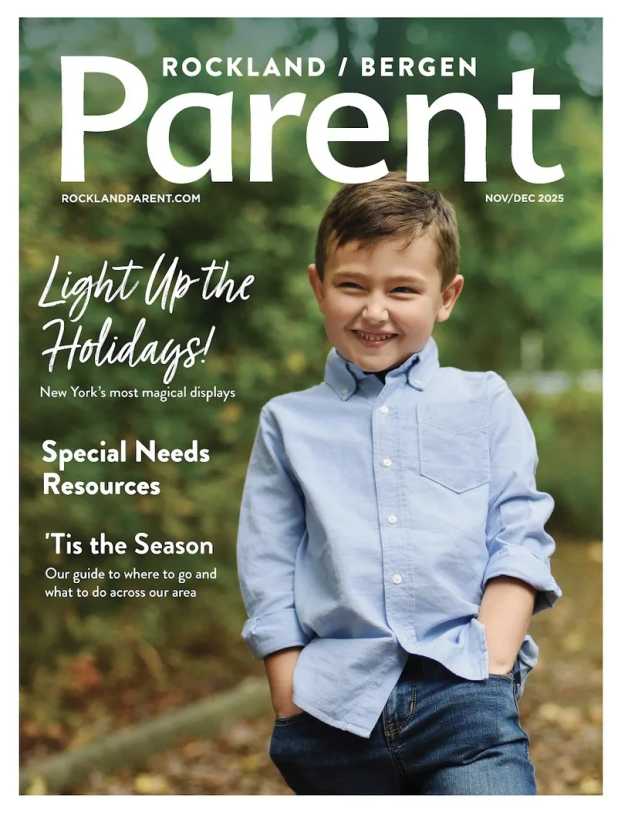Parents work hard so they can afford to raise their children in good neighborhoods, send them to the best schools and surround them with creature comforts. But according to Madeline Levine, Ph.D., author of “The Price of Privilege: How Parental Pressure and Material Advantage Are Creating a Generation of Disconnected and Unhappy Kids,” there can be a flip side to this affluence. Growing up privileged, Levine suggests, means growing up with material advantages and parental pressures that, if left unchecked, can have negative consequences on children’s emotional development. Levine talks to us about the growing “epidemic” of kids from affluent backgrounds who admit to feeling “empty” and “depressed.”
Describe the “new breed of unhappy teenager” that inspired you to write this book. In 25 years of practice, I’ve grown used to seeing unhappy kids. What’s different about the kids I’m seeing now is they’re not so frazzled. They’re well- dressed, well-groomed, sometimes they have good grades, or are still playing on the soccer team or cheerleading. But scratch the surface and these kids are pretty empty, pretty unhappy. They have a well-developed and appealing facade, but they suffer from “socially implanted selves.” These kids have had who they are defined for them. They’re used to hearing, “You’re so smart, you’re so talented, you’re such a star.” They don’t have a well-developed self, which critically means they have no self-management skills.
Some people might find it difficult to sympathize with the problems of “rich kids.” I’m not seeing bored, spoiled kids. I’m seeing really impaired kids. The fact is that these kids are going to be our leaders. They are kids who tend to become lawyers, doctors and policy makers. We want them to have a good conscience, a good sense of community and an ability to connect with others, in addition to being happy.
What kinds of negative effects can money have on kids? It’s not money that’s causing the problem; it’s what I’m calling the “culture of affluence.” And the culture of affluence is about placing a high value on material things, about liking things more than the people around you. There’s a value on individualism as opposed to community and reciprocity. You don’t have to be affluent to be part of the culture of affluence—that culture is everywhere. But materialism is an easier default setting when you have money.
What steps can parents take to avoid imparting materialistic values? I never paid my kids for chores or grades, because that sets up performance issues. For instance, a kid comes home with an A in math, a B in science and a C in history. And the parents are always like, “Okay you get $10 for the A, but that C is awful.” In fact, the C might represent the higher achievement. So result is being rewarded over effort. I’m also opposed to money for chores because that’s part of being in the family. Nobody pays me when I do the laundry. When each of my kids turned 13, he had to make a budget so I wasn’t constantly handing out $10 bills. It was a good exercise in self-management. I started with my oldest, and he went from demanding Nike shoes to buying shoes at Payless because it was on his dime. It’s a great way to learn self-control.
How can you ensure that your kid has a healthy sense of self? The most important thing for a parent of a kid of any age is to love the child you’ve got, not the child of your fantasy, not the child you wanted to have, you wish you had or your neighbor has, because a sense of being lovable is the core of healthy emotional development. I also think there are really small things you can do that go unnoticed, like sitting on a kid’s bedside before sleep – not, “So, tell me how your day was,” but just hanging out. One of the difficult parts about parenting is you never know when kids are ready to come to you. You’re not going to be on call 24/7, so there have to be places in the course of the day where you’re available, you have what I call an “inviting, listening presence.” You’re not dictating or directing, you’re just there.
How should a parent handle a young child or teenager who faces a limitation in abilities—for instance, the athlete who gets put on the bench or the student who gets tracked into a lower math group? Part of the task of childhood and the middle years is finding out what kids are good at and what their natural skills are. There’s an inevitable disappointment when kids realize that they are really good at math but can’t do English, or they can play tennis but aren’t good at team sports. The first thing to do is to let kids know that it’s okay. We all have strengths and weaknesses. Kids need to see that their parents struggle. If all kids see is you doing everything easily and perfectly, they don’t learn that it’s part of the human condition to be better at some things and not as good at others.
Although you focus on moms, what are some steps fathers can take to help kids develop healthy identities? Research shows that an involved dad in adolescence results in kids with better social skills and better grades. But I think that dads have a really hard time because they have the pressure of maintaining the lifestyle. Plus, there’s all this advice about, “You ought to hang around more, you ought to have an inviting, welcoming presence,” when dad’s coming home at 11 o’clock and can’t see straight. Everything we know tells us there is zero correlation between money and happiness. You have to think about whether that extra thousand or ten thousand or hundred thousand dollars is worth it. Because what your kids need is not stuff or money. What your kids need is you.























